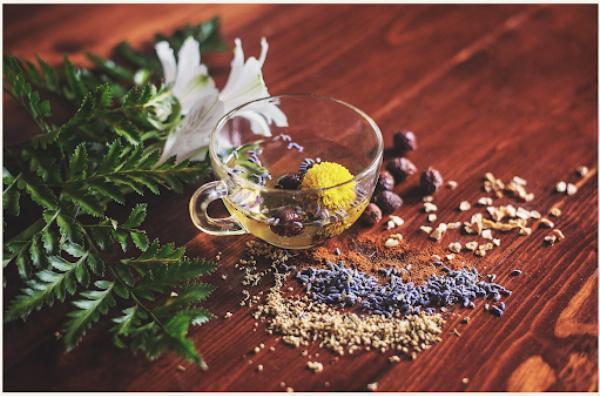10 Herbal Supplements to Naturally Boost Your Immune System

Strong 8k brings an ultra-HD IPTV experience to your living room and your pocket.
In an age where health is paramount, many people are turning to natural remedies to bolster their immune systems. Herbal supplements are particularly popular due to their low risk of side effects, long history of use in traditional medicine, and holistic approach to health. Here’s a detailed look at ten herbal supplements that can help support and enhance your immune function, along with insights into why herbal supplements might be a better choice for some individuals.
Why Choose Herbal Supplements?
Herbal supplements offer several advantages over synthetic alternatives:
Natural Composition: They are derived from plants and are processed minimally, making them a natural addition to a health regimen.
Holistic Support: Herbs typically work on multiple body systems simultaneously, supporting overall well-being, not just fighting illness.
Fewer Side Effects: Herbal supplements generally have fewer side effects compared to pharmaceuticals, when used appropriately.
History of Use: Many herbs have been used for centuries, providing a time-tested approach that is validated by generations of use.
1. Echinacea
One of the most well-known herbs for immune support, Echinacea is reputed for its ability to possibly reduce the duration and severity of colds.
How it Works: It stimulates the immune system, enhancing the activity of immune cells such as macrophages and T-cells.
How to Use: Available in teas, capsules, and tinctures. Start taking at the first sign of cold or flu symptoms.
Considerations: Best used in short bursts as it loses effectiveness with continuous use.
2. Elderberry
Rich in vitamins and antioxidants, elderberry is excellent for immune health, particularly known for its effectiveness against viral infections.
How it Works: Compounds in elderberries can reduce the duration of flu symptoms by boosting cytokine production, a critical part of the immune response.
How to Use: Syrups, lozenges, and capsules are common forms. Take it as soon as symptoms appear.
Considerations: Ensure to use commercially-prepared products to avoid the toxic effects of raw berries.
3. Astragalus Root
Astragalus is a cornerstone in traditional Chinese medicine, used for its deep immune-strengthening abilities and preventative capabilities.
How it Works: It boosts the body’s defense against viruses and bacteria and has antioxidant properties that protect cellular health.
How to Use: Commonly consumed in soups, teas, or as supplements.
Considerations: It’s best used as a preventative measure rather than during acute illness.
4. Garlic
Garlic’s immune-boosting properties are primarily due to its compound allicin, which offers significant antibacterial and antiviral benefits.
How it Works: Garlic stimulates the activity of immune cells and has antimicrobial effects that help fight infections.
How to Use: Best consumed raw or aged in supplements for those who are sensitive to its potent taste.
Considerations: Can interact with blood-thinning medications.
5. CBD
Cannabidiol (CBD), a non-psychoactive compound found in cannabis plants, has gained significant attention in the wellness industry for its extensive range of potential health benefits. The interaction of CBD vape juice UK with the body's endocannabinoid system (ECS) is key to its effectiveness in modulating and supporting various physiological processes, including immune function.
How CBD Works
The endocannabinoid system plays a crucial role in maintaining homeostasis within the body, which includes regulating immune system responses. CBD interacts with the ECS by influencing cannabinoid receptors (CB1 and CB2) located throughout the body. While CB1 receptors are primarily found in the central nervous system, CB2 receptors are more commonly located on cells in the immune system. CBD's action on CB2 receptors helps modulate the immune response, reducing inflammation, which is often an immune system's reaction to perceived threats.
Immune-Modulating Effects of CBD
CBD is particularly noted for its anti-inflammatory properties, which are vital in managing the immune system's response to infection and disease. Chronic inflammation is often a symptom of an overactive immune response, which can lead to various autoimmune diseases and infections. By reducing inflammation, CBD can potentially help prevent and alleviate these conditions.
In addition to its anti-inflammatory effects, CBD has been studied for its role in apoptosis (programmed cell death that is necessary for stopping proliferating viral cells and tumor cells), immune cell proliferation (which is crucial when the body needs to fight off infections), and cytokine production (proteins that signal the immune system to do its job). All these actions can help maintain a balanced immune response, which is particularly beneficial in autoimmune and inflammatory conditions.
How to Use CBD for Immune Support
CBD is available in various forms, making it easy to incorporate into your daily routine based on personal preference:
Oils and Tinctures: These are placed under the tongue for quick absorption into the bloodstream. They allow for easy adjustment of dosages and are popular for their fast-acting effects.
Capsules and Pills: These are ideal for those who prefer a no-fuss method with a consistent dose. They pass through the digestive system, so the onset of effects can be slower compared to tinctures.
Edibles: Including gummies and other infused foods, edibles offer a discreet and tasty way to consume CBD. Like capsules, they have a slower onset due to the digestion process.
Topicals: Creams and balms infused with CBD can be applied directly to the skin. While not impactful on systemic immune functions, they can help with localized inflammation and pain.
6. Turmeric
Known for its vibrant color and strong anti-inflammatory properties, turmeric is another excellent choice for immune support.
How it Works: Curcumin, the active compound in turmeric, modulates the immune system and can reduce inflammation.
How to Use: Can be added to food or taken as a supplement, often enhanced with black pepper for better absorption.
Considerations: Overconsumption can lead to gastrointestinal issues.
7. Andrographis
Referred to as "Indian echinacea," Andrographis is a bitter herb that is effective in treating colds, influenza, and other respiratory infections.
How it Works: It boosts the immune response and reduces symptom severity.
How to Use: Available in supplements, usually taken at the first sign of symptoms.
Considerations: Its bitterness might not be suitable for everyone and can lead to gastrointestinal discomfort.
8. Licorice Root
Licorice root enhances immunity by increasing the levels of interferon, a key antiviral agent that is crucial for the immune defense system to fight viruses.
How it Works: It has anti-inflammatory and antimicrobial properties, making it a supportive supplement for immune health.
How to Use: Commonly taken as tea, tablets, or liquid extract.
Considerations: Long-term use can lead to high blood pressure, low potassium levels, and water retention.
9. Ginger
Widely used for its anti-inflammatory properties, ginger also helps to enhance immune function by breaking down toxins in the body’s organs.
How it Works: Its antiviral properties help to combat illness while soothing the stomach.
How to Use: Fresh ginger is great in teas or cooked dishes. Supplements are available for those who prefer not to eat it raw.
Considerations: High doses can cause heartburn or stomach upset.
10. Olive Leaf Extract
Olive leaf extract is a powerful supplement with natural antiviral properties, effective in boosting the body's defensive mechanisms.
How it Works: The active compound oleuropein is known for its ability to inhibit the replication of viruses.
How to Use: Commonly taken in capsule form.
Considerations: Can lower blood pressure, so it must be used with caution by those with low blood pressure or those taking blood pressure medications.
Conclusion
Herbal supplements provide a natural, effective way to support and enhance immune health. By incorporating these herbs into your health regimen, you can enjoy the benefits of nature's own medicine cabinet. Always consult with a healthcare provider before starting any new supplement, especially if you have existing health conditions or are taking other medications.
Note: IndiBlogHub features both user-submitted and editorial content. We do not verify third-party contributions. Read our Disclaimer and Privacy Policyfor details.


